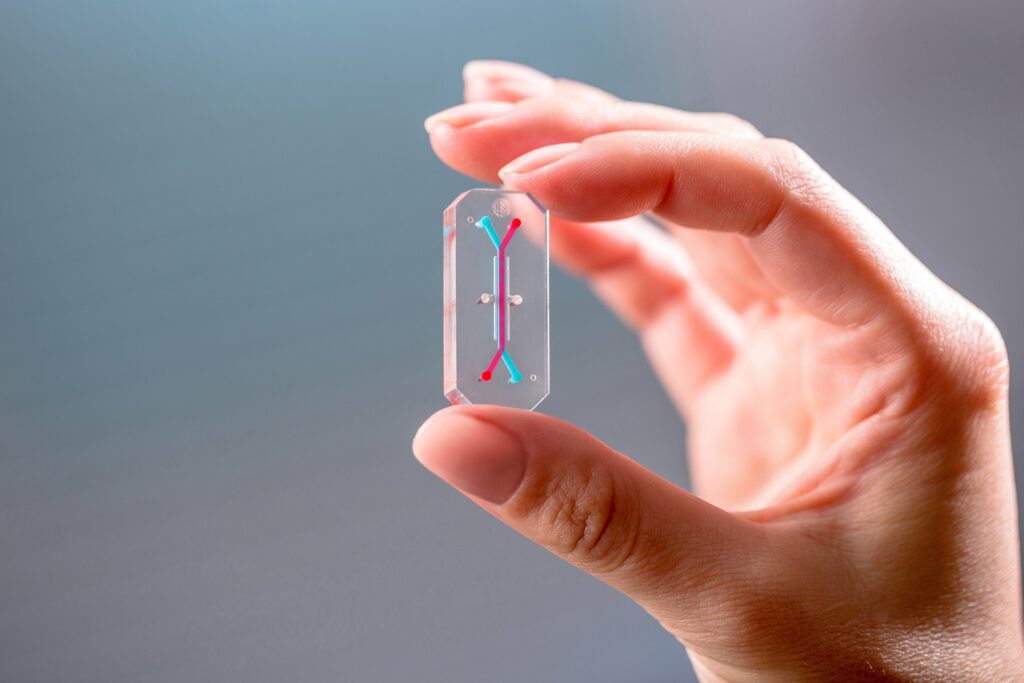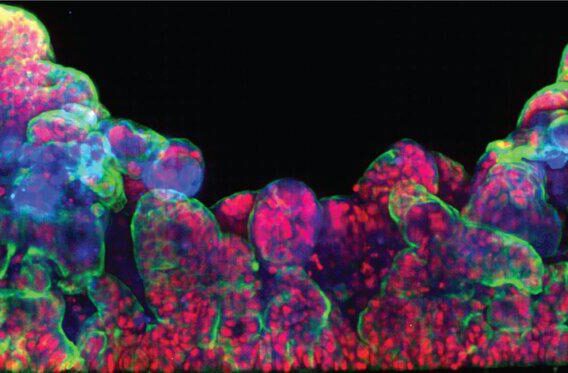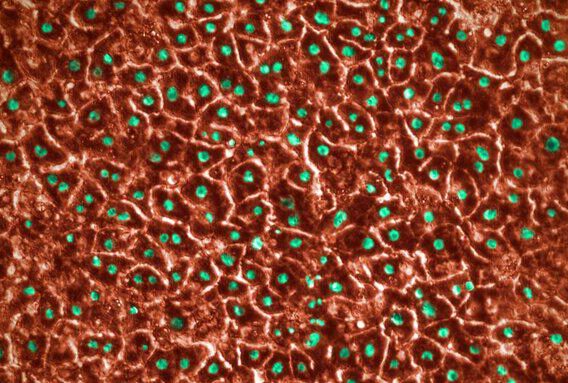Scientists from Emulate and Roche form innovative partnership to use Organ-Chips for testing of efficacy and safety of new antibody therapeutics and combination therapies
Partnership to adopt Organ-Chips to provide human-relevant data in drug discovery and development aiming to reduce animal testing, and to implement personalized safety testing of new drug candidates
BOSTON, Mass. — Emulate, Inc. announced today that it has formed a strategic partnership with F Hoffman La-Roche AG (Roche) that will use Emulate’s Human Emulation System across R&D programs to enable more human-relevant studies that will lead to earlier and better prediction of safety and efficacy of drug candidates. The partnership will use the Human Emulation System — a lab-ready system comprised of Organ-Chips, instrumentation, and software apps — to discover and develop new classes of therapeutic antibodies and drug combinations, many of which have complexities and human-specific features.
The partnership is designed to use Organ-Chips that reflect the complex biology required to model the effects of therapeutic antibodies in humans, overcoming the limitations of current preclinical experimental methods. Emulate’s Organ-Chips recreate the complex, dynamic state in which cells function within a human organ. Immune cells can also be introduced into Organ-Chips, which allows for human-relevant testing of antibodies and drug combinations.
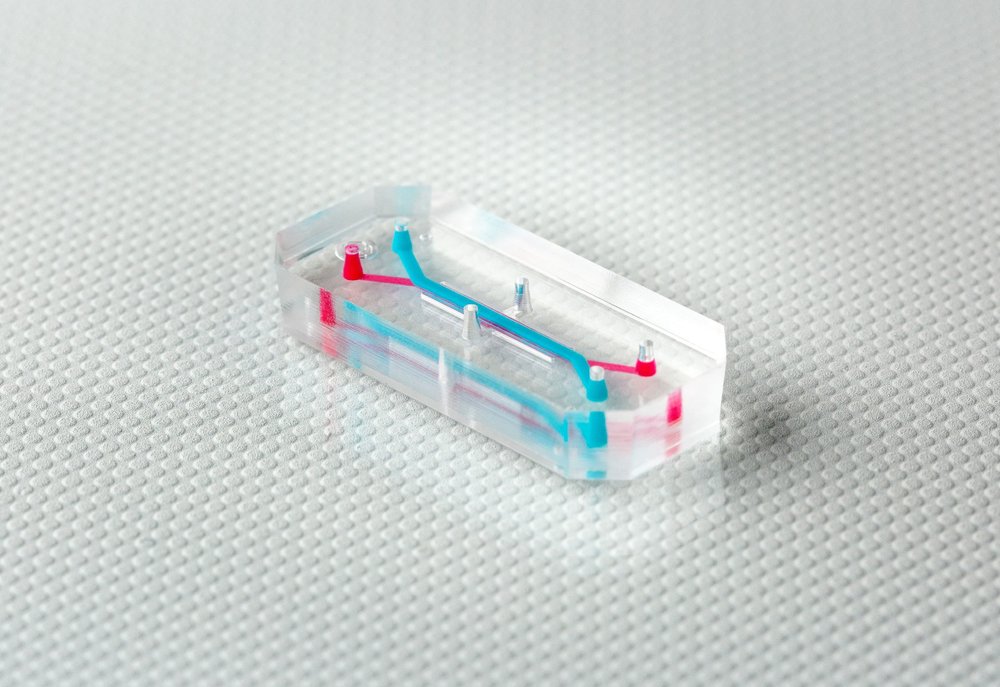
Other components of the partnership include using Organ-Chips to gain further insight into disease mechanisms, to increase predictability and early detection of biomarkers, and to reduce the use of animals in scientific testing. An additional goal of the partnership is to use patient-derived cells in Organ-Chips to make progress with strategies for personalized drug safety and allow a new approach to augment the prediction of disease or treatment variation between individuals.
“We are thrilled to establish this partnership with Roche, with the goal of changing the way drug discovery and development is done — from early discovery, all the way to the clinic,” said Geraldine A. Hamilton, President and Chief Scientific Officer of Emulate. “Our approach is to start with the patient and end with the patient by using patient-derived cells with Organ-Chips. As we produce more human-relevant data with our Organ-Chips, we look forward to making a positive impact on informing R&D decisions, reducing drug candidate attrition in human clinical trials, and helping to deliver better and safer medicines to patients.”
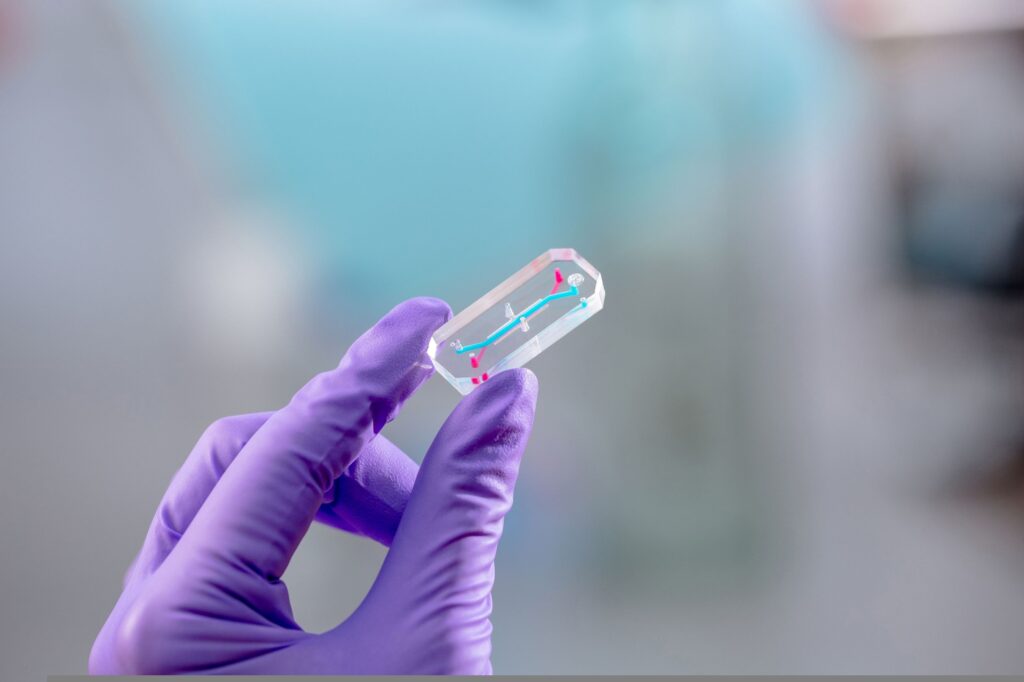
Through this three-year research partnership, scientists from both companies will work side-by-side, initially within Emulate’s labs in Boston. This partnership features an innovative approach based in a jointly-run lab at Emulate where scientists will work together to use Organ-Chips for testing of efficacy and safety of new antibody therapeutics and combination therapies. Emulate will provide its technology along with the scientific expertise to implement a range of experimental designs for evaluating Roche’s drug candidates. The collaborative research will initially focus on using Emulate’s Lung-Chip and Brain-Chip, with the opportunity to expand to use other Organ-Chips.
We are thrilled to establish this partnership with Roche, with the goal of changing the way drug discovery and development is done — from early discovery, all the way to the clinic.
— Geraldine A. Hamilton, President and Chief Scientific Officer of Emulate
Advance in Human-Relevant R&D: Evaluating Antibodies to Reflect Dynamic Human Pathways and Immune System
Emulate’s Organ-Chips recreate the natural physiology of the human body, including the following unique functionality:
- Addressing the human-specific nature of antibodies is possible using Organ-Chips that recreate the complexity of human biology, since novel antibody targets are not expressed in animals and therefore require alternatives to current preclinical experimental methods.
- Disease-driving pathways that involve the human immune system are often targeted by antibodies, and Organ-Chips recreate complex interactions of different human cell types and aspects of the human immune system, overcoming limitations of animal models which do not reflect all human immune cells.
- New human-specific biomarker identification and new drug discovery is possible using Organ-Chips, based on new insights into biological pathways of disease and immune system interaction.
- Personalized drug safety can be addressed with patient-derived cells in Organ-Chips, enabling a patient-specific approach for assessing the safety and efficacy of new candidates while taking into account patient variability and the unique biology of individual patients.
About the “Human Emulation System” Powered by Organs-On-Chips Technology
Based on the Organs-on-Chips technology, Emulate has created a new living Human Emulation System™ that provides a real-time window into the inner workings of human biology and disease – offering researchers a new technology designed to predict human response with greater precision and detail than today’s cell culture or animal-based experimental testing. Each of Emulate’s proprietary Organ-Chips – such as the lung, liver, brain, intestine or kidney – contains tiny hollow channels lined with tens of thousands of living human cells and tissues, and is approximately the size of an AA battery. An Organ-Chip is a living, micro-engineered environment that recreates the natural physiology and mechanical forces that cells experience within the human body.
About Emulate, Inc.
Emulate Inc. is a privately held company that creates living products for understanding how diseases, medicines, chemicals, and foods affect human health. Our Human Emulation System™ sets a new standard for recreating true-to-life human biology and is being used to advance product innovation, design, and safety across a range of applications including drug development, agriculture, cosmetics, food, and chemical-based consumer products. Emulate continues to develop a wide range of Organ-Chips and disease models through collaborations with industry partners and internal R&D programs. Emulate is also working with clinical partners to produce Organ-Chips personalized with an individual patient’s stem cells, for applications in precision medicine and personalized health. Our founding team pioneered the Organs-on-Chips technology at the Wyss Institute for Biologically Inspired Engineering at Harvard University. Emulate holds the worldwide exclusive license from Harvard University to a robust and broad intellectual property portfolio for the Organs-on-Chips technology and related systems.
Image 1 caption:
Emulate’s S-1 Organ-Chip technology.
Image credit: Emulate, Inc.
Image 2 caption:
Microengineered Organ-Chip is made out of a flexible polymer that features tiny channels that can be lined with thousands of living human cells.
Image credit: Emulate, Inc.
Image 3 caption:
Emulate’s S-1 Organ-Chip technology.
Image credit: Emulate, Inc.

